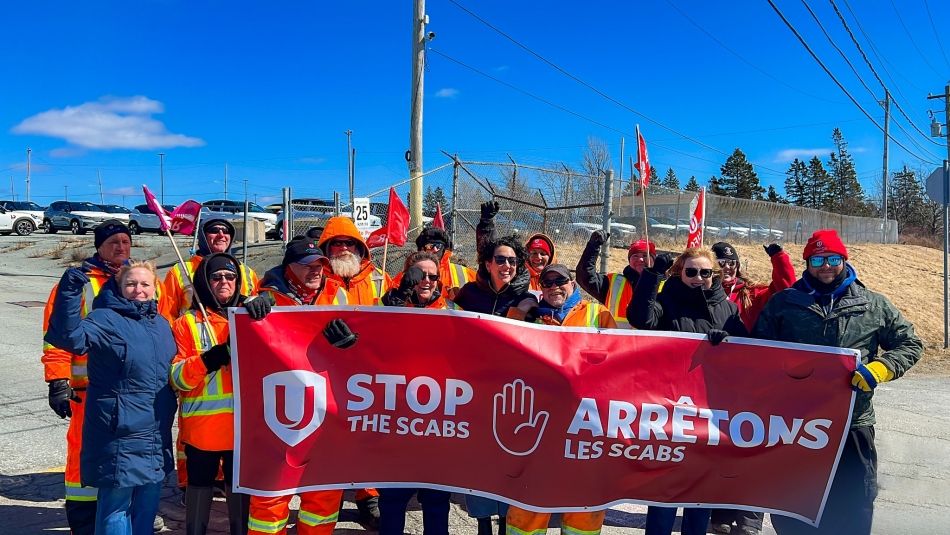23 June, 2025Two IndustriALL affiliates, Unifor and the United Steelworkers (USW), are celebrating the entry into force of federal anti-scab legislation that bans employers from using replacement workers during legal strikes and lockouts. The legislation, which applies to federally regulated sectors such as telecommunications, transport and banking, marks a major victory for workers’ rights after decades of advocacy. The law was achieved through years of coordinated organizing, lobbying and political action led by unions and their allies.
After years of tireless organizing and political pressure, workers in federally regulated sectors are now protected by a law that prohibits employers from hiring replacement workers during legal strikes and lockouts. The new law aligns federal protections with those already in place in Quebec and British Columbia and imposes strict penalties of up to CA$100,000 (US$72,521) per day for violations.
Unifor national president Lana Payne called the law a “historic and hard-fought victory,” stating:
“Unifor and our labour allies mobilized, organized and demanded change and today, we see that the power of collective action can achieve real, lasting progress. No employer should be allowed to undermine negotiations with scab labour.”
The new protections mean that workers in industries like rail transport, telecommunications and banking can now strike without fear that their jobs will be outsourced overnight, marking a crucial shift in bargaining power.
Marty Warren, USW national director, emphasized the significance of the new protections:
“This is a major turning point for labour rights in Canada. For decades, steelworkers have fought to outlaw scab labour and restore fairness at the bargaining table. With this law, federally regulated workers finally have the protection they deserve. It’s a critical step forward for fairness and respect on the picket line.”
Both unions played a pivotal role in building grassroots support, lobbying legislators and ensuring the issue remained a national priority. The legislation, which received unanimous support in Parliament, requires that any exceptions related to essential services must be settled through negotiation, not imposed unilaterally by employers.
While celebrating the win, both Unifor and USW urged continued vigilance. Employers are already seeking ways to exploit potential loopholes in the law. Payne warns:
“We have to stay vigilant to defend our right to strike, protect our gains and extend these protections to all workers in every jurisdiction.”
USW also noted that while the law is a step forward, its full impact will depend on strong enforcement and closing remaining gaps that could weaken its effect.
IndustriALL assistant general secretary, Kemal Özkan, praised the achievement:
“This victory in Canada is a powerful example of what workers can achieve through unity and determination. We commend our Canadian affiliates and the entire union movement in the country on this victory and stand with them in the fight to extend these protections to all workers.”


